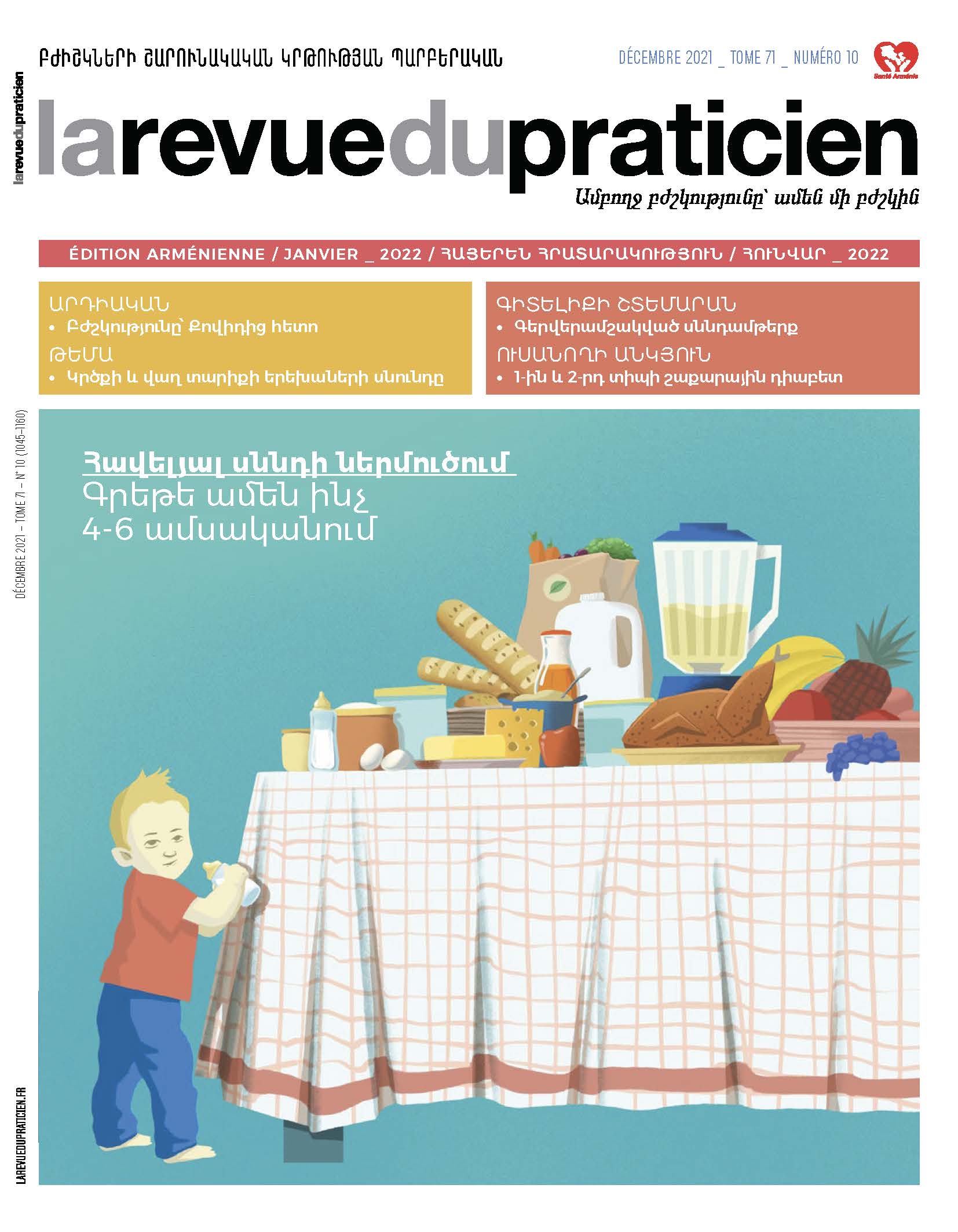Ամփոփագիր
Վերջին տասնամյակների ընթացքում պարենային համակարգերում զգալիորեն ավելացել է սննդամթերքի վերամշակման աստիճանը, փոփոխվել բաղադրակազմը։ Այսպես կոչված՝ գերվերամշակված սննդամթերքը փոխակերպման ինտենսիվ գործընթացներ է անցնում (կենսաբանական, քիմիական, ֆիզիկական), հավանորեն լայնորեն ազդում է սննդային մատրիցաների վրա և սովորաբար պարունակում է հավելումներ (գունանյութեր, համի ուժեղացուցիչներ, քաղցրացուցիչներ, էմուլսարարներ և այլն) կամ այլ՝ տիպիկ արդյունաբերական բաղադրանյութեր (մալտոդեքստրին, հիդրոգենացված յուղեր և այլն)։ Այս սննդամթերքի բազմաթիվ բնութագրեր դրդել են հետազոտողներին՝ պարզել դրանց ազդեցությունն առողջության վրա։ Դրանք են՝ միջինում ավելի ցածր սննդային որակը, հավելումների առկայությունը, որոնց մինչկլինիկական in vitro/in vivo հետազոտությունները ցույց են տվել դրանց որոշակի վնասակար հետևանքները, վերամշակման գործընթացների կամ փաթեթավորման արդյունքում աղտոտիչների առկայությունը, տեքստուրան և զգայորոշիչ (օրգանոլեպտիկ) հատկությունները, որոնք նպաստում են չափազանց շատ սպառմանը, և այլն։ Վերջին տարիներին աշխարհի տարբեր երկրներում իրականացված տասնյակ առաջահայաց (պրոսպեկտիվ) հետազոտություններ բացահայտել են գերվերամշակված սննդամթերքի կիրառման և քրոնիկական հիվանդությունների (քաղցկեղ, սիրտ-անոթային հիվանդություններ, շաքարային դիաբետ, գիրացում և այլն) մեծ վտանգի ու մահացության միջև կապը։ Ֆրանսիայում և այլ երկրներում հանրային առողջապահության մարմինները ներկայումս խորհուրդ են տալիս սահմանափակել այդ սննդամթերքի կիրառությունը։ Նյութերը, գործընթացներն ու մեխանիզմներն ավելի լավ հասկանալու, նաև որոշ բաղադրանյութերի, հավելումների կամ վերամշակման մեթոդների կիրառման կանոնակարգ մշակելու համար անհրաժեշտ են հետազոտություններ։
Résumé
Au cours des dernières décennies, les systèmes alimentaires ont connu une augmentation importante du degré de transformation et de formulation des produits. Les aliments dits « ultratransformés » ont subi d’intenses processus de transformation (biologique, chimique, physique), susceptibles d’impacter largement les matrices alimentaires, et contiennent généralement des additifs (colorants, exhausteurs de goût, édulcorants, émulsifiants, etc.) ou d’autres ingrédients typiquement industriels (maltodextrine, huiles hydrogénées, etc.). Plusieurs de leurs caractéristiques ont incité les chercheurs à investiguer l’impact de leur consommation sur la santé : moindre qualité nutritionnelle en moyenne, présence d’additifs pour lesquels des études précliniques in vitro/in vivo ont suggéré certains effets nocifs, présence de contaminants issus des procédés de transformation ou des emballages, texture et propriétés sensorielles incitant à la surconsommation, etc. Ces dernières années, des dizaines d’études prospectives dans le monde ont observé des associations entre la consommation de ces produits et des risques plus élevés de maladies chroniques (cancer, maladies cardiovasculaires, diabète, obésité…) et la mortalité. En France et dans d’autres pays, les autorités de santé publique recommandent donc désormais de limiter leur consommation. Des travaux de recherche sont nécessaires afin de mieux comprendre les substances, procédés et mécanismes en jeu et d’orienter la réglementation sur l’usage de certains ingrédients, additifs ou pratiques de transformation.
Abstract
During the past decades, food systems have shifted towards an important increase in the degree of food processing and formulation. Ultra-processed foods are products that have undergone complex processing techniques (physical, chemical, or biological), having a possible impact on food matrix, and often contain cosmetic food additives (emulsifiers, sweeteners, coloring agents…) and industrial substances derived from foods (maltodextrin, hydrogenated oils, modified starches…). Several characteristics of ultra-processed foods have triggered the scientific community to investigate their potential impact on long-term human health: a lower nutritional quality compared with unprocessed or minimally processed foods, food additives for some of which possible adverse effects have been suggested in preclinical in vitro / in vivo studies, contaminants issued from processing techniques or packaging, and modifications in the food matrix and textures, leading to increased energy intake rate and overconsumption. Dozens of prospective studies around the world have shown associations between the consumption of these products and higher risks of chronic diseases (e.g. cancer, cardiovascular disease, type-2 diabetes, obesity) and mortality. Public health authorities in France and other countries now recommend limiting the consumption of these products. However, further research is needed to better understand the underlying mechanisms and pertinently guide regulating the use of certain substances and additives, and industrial reformulation processes.
